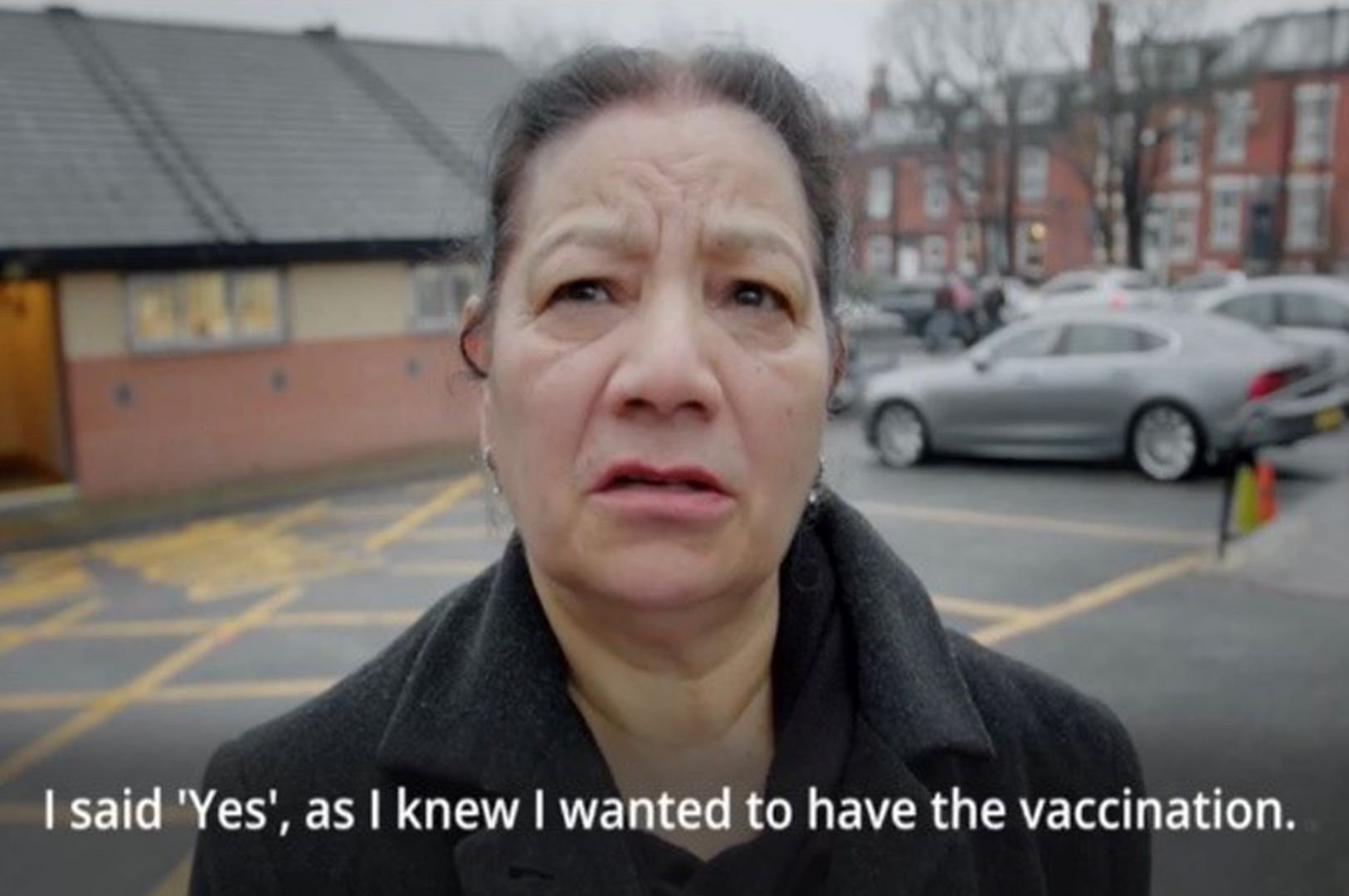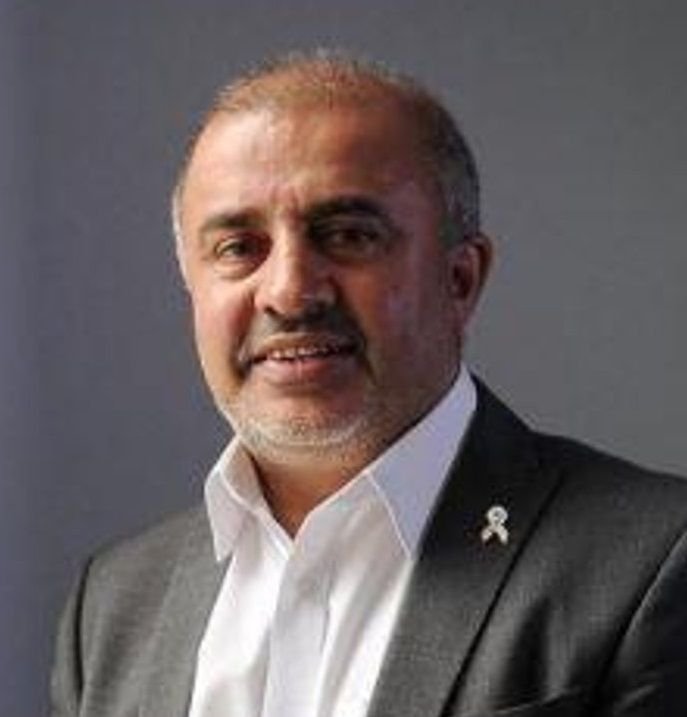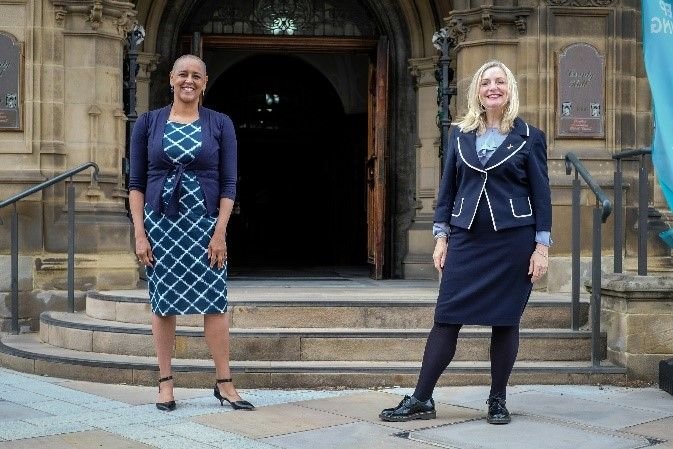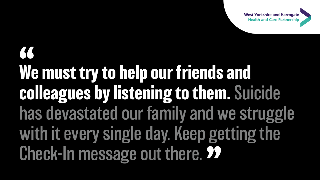 Hello, my name is Kathy
Hello, my name is Kathy
I'm Deputy Chief Executive at Yorkshire and the Humber Academic Health Science Network, an organisation that exists to transform health through innovation. Innovation, for me, is implementing new things or, just as importantly, applying existing tools, technologies, services, and pathways in new ways. We know the NHS is facing huge challenges now: addressing the impact of Covid-19, reducing waiting lists, going through structural change and all with an exhausted workforce that has responded incredibly to the demands of the pandemic.
We also know that doing the same things in the same ways is very unlikely to result in the level of change needed to meet the challenges. And this is where innovation comes in. New technologies and services can help to reduce waiting lists and keep people waiting well but locating and then delivering these innovative solutions is not that simple.
Innovation can be hard! There are plenty of insightful reports looking at why the NHS sometimes (or often, it could be argued) fails to adopt and encourage innovation. But, for a health system to make the most of the opportunities that innovation brings, the right conditions to support innovation need to be there. There needs to be an innovation-friendly culture.
It's this latter element that the refreshed Innovation and Improvement Programme Board (IIPB) at West Yorkshire & Harrogate (WYH) Health and Care Partnership has made one of its main aims. The IIPB membership is drawn from the Integrated Care System and its partners, such as the Yorkshire & Humber AHSN. The common theme uniting us all is our belief that innovation and improvement will help WYH organisations deliver healthcare in the most efficient and effective way possible, resulting in the optimal outcomes for our patients and their families as well as supporting local economic growth. But what does an innovation-friendly culture look like?
Unsurprisingly, there is a lot of research in this area. I don't pretend to have read it all but there are some common themes emerging, and none of them involve bean bags, table tennis and being able to write on walls! As always, where there is lots of research, there are lots and lots of views. The following are those areas that resonate with me and what I have seen when looking at organisations and systems that have been successful at innovating and adopting innovation:
- There is no one ideal model of an innovation culture. Just as in spread and adoption of innovation, one size does not fit all. Instead, such a culture will need to fit with existing values and behaviours.
- Psychological safety is critical if staff feel able to be creative, take risks, do things differently and speak up.
- A willingness to learn from failure is also key. Innovation is often risky, and no organisation can be 100% successful when introducing change. But it's important to learn from the unsuccessful activity and apply that learning. It's also important that failure to succeed in something new is not confused with poor staff performance.
- Clarity and transparency are really important elements of an innovation culture; clarity on what needs to be done (so that staff, and service users, understand what’s happening and why) and transparency around what is being achieved (so that everyone knows where we are up to).
- New ways of doing things don't come from groups of people who think the same; diversity is crucial if we are to do things differently. The Yorkshire & Humber AHSN has reported on the value of diversity in generating new ideas and it's just as important in supporting the uptake of innovation.
- Finally, and probably most importantly, all these factors require leaders that support innovation; without leaders, at all levels, that support the factors above, a culture that supports innovation won't thrive. None of this is easy; it all requires hard work, and lots of it. But, as Liz Mear, Managing Director of the Leeds Academic Health Partnership said in her April blog, now is the time for new ideas. The IIPB will be working across the ICS, its places, and partners to deepen the existing innovation culture and support and spread good practice; ensuring the ICS is well placed to generate new ideas and to implement them to meet the challenges of today and tomorrow.
Have a good weekend
Kathy
Follow Kathy on Twitter @KathyScott_535 and the AHSN @YHAHSN


 Hello, my name is Pam and I’m a Sikh. I’m writing a blog from a slightly different angle with also a chance to educate and celebrate what South Asians bring to society in
Hello, my name is Pam and I’m a Sikh. I’m writing a blog from a slightly different angle with also a chance to educate and celebrate what South Asians bring to society in  When it came to encouraging family, friends, or community members to take up the jab my mum was willing to step forward to film her experience in Punjabi. It was heart-breaking for my mum to put the film together as her brother has just passed of Covid and the funeral was the day before filming.
When it came to encouraging family, friends, or community members to take up the jab my mum was willing to step forward to film her experience in Punjabi. It was heart-breaking for my mum to put the film together as her brother has just passed of Covid and the funeral was the day before filming. As you know the Covid situation in India earlier this year was like watching your worst nightmare play out in front of you through various media outlets. The general lack of infrastructure, in particular a lack of ventilators, oxygen tanks and a slow vaccine rollout saw the ravaging effects of this deadly virus. Like many, I personally too lost extended family members to the virus out in India. That dread of the next phone call or text from relatives informing us of bad news was a challenging time. Me and other NHS colleagues got together to raise money for five charities. In total we are delighted to announce that so far, we have been able raise over £46,000 (inc. gift aid) for our India Covid Crisis appeal and with those donations, we were able to get vital life-saving equipment (oxygen, ventilators, PPE etc.) to those most impacted by the Covid pandemic. Throughout, we have worked closely with the Indian High Commission in Birmingham and have collaborated with both British and Indian clinicians to receive feedback and to share mutual learning. I and my fundraising colleagues have been truly humbled by the public response. Thank you to all who donated.
As you know the Covid situation in India earlier this year was like watching your worst nightmare play out in front of you through various media outlets. The general lack of infrastructure, in particular a lack of ventilators, oxygen tanks and a slow vaccine rollout saw the ravaging effects of this deadly virus. Like many, I personally too lost extended family members to the virus out in India. That dread of the next phone call or text from relatives informing us of bad news was a challenging time. Me and other NHS colleagues got together to raise money for five charities. In total we are delighted to announce that so far, we have been able raise over £46,000 (inc. gift aid) for our India Covid Crisis appeal and with those donations, we were able to get vital life-saving equipment (oxygen, ventilators, PPE etc.) to those most impacted by the Covid pandemic. Throughout, we have worked closely with the Indian High Commission in Birmingham and have collaborated with both British and Indian clinicians to receive feedback and to share mutual learning. I and my fundraising colleagues have been truly humbled by the public response. Thank you to all who donated. The ICS Partnership
The ICS Partnership Cllr Shabir Pandor, Leader for Kirklees Council and Movement Ambassador said:
Cllr Shabir Pandor, Leader for Kirklees Council and Movement Ambassador said: Everyone, no matter what their background, deserves the same opportunities in work and equal access to health and care. As Mayor of West Yorkshire, I’ve made it a key commitment to ensure we tackle structural and institutional racism by ensuring inclusivity and diversity are at the very heart of everything we do. We all saw the appalling abuse aimed at England players after the Euro finals just a few weeks ago which was yet another reminder that racism is still very much an issue that needs to be rooted out in our society. There is still a long way to go, but the more people see campaigns like this, the more I hope we are able to spread the word that racism has no place in West Yorkshire, and I encourage every organisation across the region to support this campaign."
Everyone, no matter what their background, deserves the same opportunities in work and equal access to health and care. As Mayor of West Yorkshire, I’ve made it a key commitment to ensure we tackle structural and institutional racism by ensuring inclusivity and diversity are at the very heart of everything we do. We all saw the appalling abuse aimed at England players after the Euro finals just a few weeks ago which was yet another reminder that racism is still very much an issue that needs to be rooted out in our society. There is still a long way to go, but the more people see campaigns like this, the more I hope we are able to spread the word that racism has no place in West Yorkshire, and I encourage every organisation across the region to support this campaign." Our Housing for Health Network meets next week. This month we have a focused session on fuel poverty, winter warmth and good quality homes. Guest speakers include Repair and Care Leeds who are an independent home improvement agency with charitable status. They will be sharing the work they do to improve people’s living conditions, promote independence through enhancing health and quality of life, and enable people to remain living in their own home or return to their home following discharge from hospital.
Our Housing for Health Network meets next week. This month we have a focused session on fuel poverty, winter warmth and good quality homes. Guest speakers include Repair and Care Leeds who are an independent home improvement agency with charitable status. They will be sharing the work they do to improve people’s living conditions, promote independence through enhancing health and quality of life, and enable people to remain living in their own home or return to their home following discharge from hospital. Our colleagues in the Suicide Prevention Team have been finalising content for our new West Yorkshire Suicide Prevention website, which has been coproduced by a group of organisations including voluntary, NHS and local authorities who are all working to reduce death by suicide in the region. The website, due to go live at the beginning of August, is an information portal which will help colleagues and carers navigate the help available.
Our colleagues in the Suicide Prevention Team have been finalising content for our new West Yorkshire Suicide Prevention website, which has been coproduced by a group of organisations including voluntary, NHS and local authorities who are all working to reduce death by suicide in the region. The website, due to go live at the beginning of August, is an information portal which will help colleagues and carers navigate the help available. Demand pressures for Yorkshire Ambulance Service
Demand pressures for Yorkshire Ambulance Service Amanda Pritchard appointed NHS Chief Executive
Amanda Pritchard appointed NHS Chief Executive